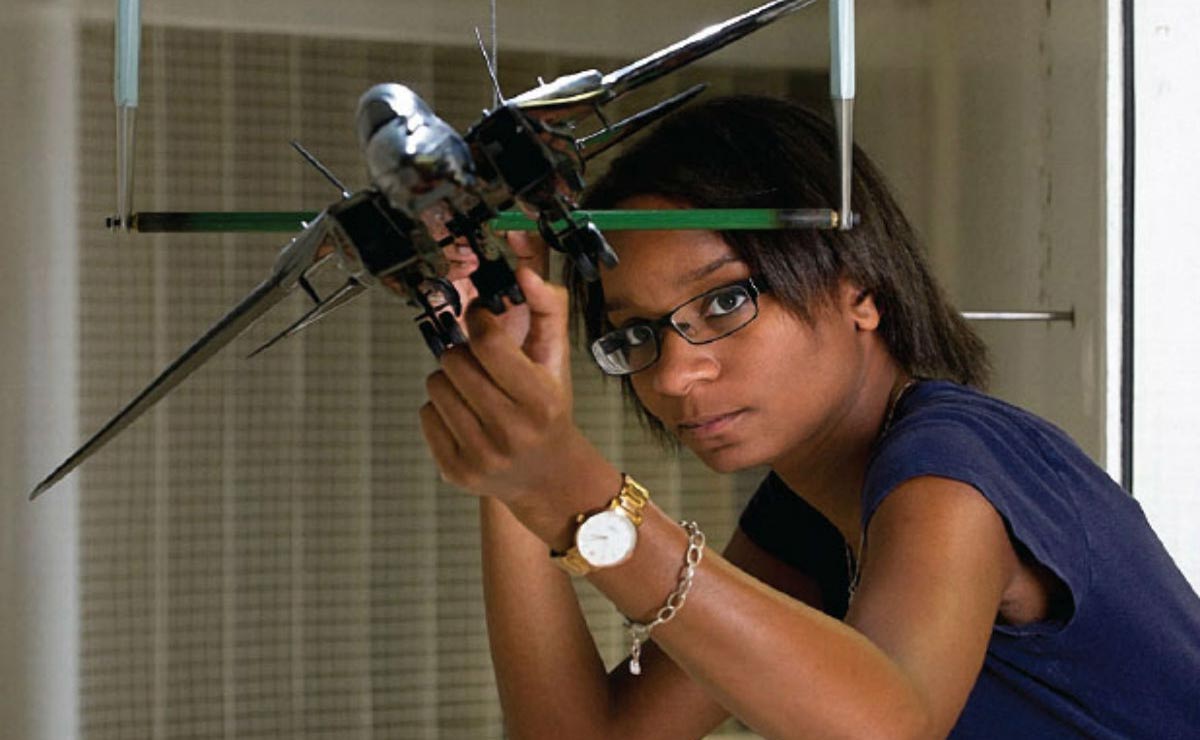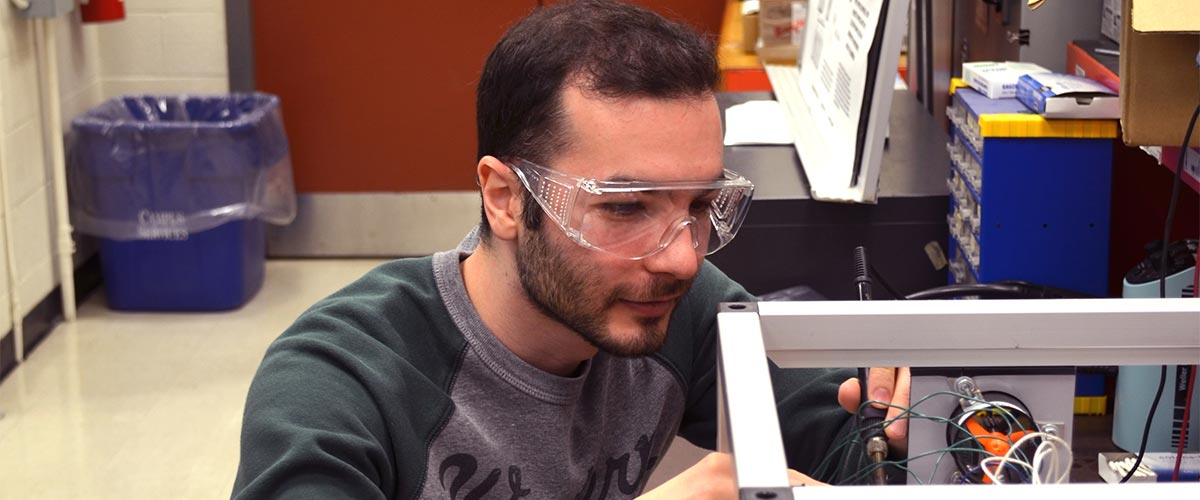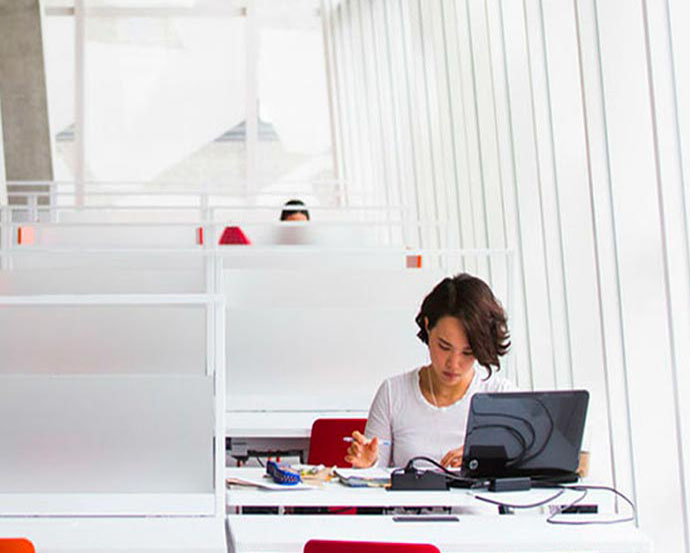Aerospace Engineering (MASc, MEng, PhD)
Part of the Faculty of Engineering and Architectural Science

Format: Full-time (MASc, MEng, PhD), Part-time (MEng)
Degree Earned: Master of Applied Science, Master of Engineering or PhD
This program focuses on the intellectual development of graduate students within the field of aerospace engineering. Students will further develop critical and independent thinking throughout the wide spectrum of graduate courses offered.
Located in the George Vari Engineering and Computing Centre, a state-of-the-art building in the heart of downtown Toronto, the Department of Aerospace Engineering has garnered an esteemed reputation, due in part to its partnerships with industry, and its contribution to the development of strategic plans for promoting the growth of the aerospace industry on provincial, national and international levels.

MASc
- Completion of a four-year undergraduate degree in aerospace engineering or a related engineering or applied science field (or equivalent degree) from an accredited institution
- Minimum grade point average (GPA) or equivalent of 3.33/4.33 (B+) in the last two years of study
- Statement of interest
- Resumé/CV
- Transcripts
- Two letters of recommendation
- English language proficiency requirement
MEng
- Completion of a four-year undergraduate degree in aerospace engineering or a related engineering or applied science field (or equivalent degree) from an accredited institution
- Minimum grade point average (GPA) or equivalent of 3.00/4.33 (B) in the last two years of study
- Statement of interest
- Resumé/CV
- Transcripts
- Two letters of recommendation
- English language proficiency requirement
PhD
- Completion of a master’s degree in aerospace engineering or a related engineering or applied science field from an accredited institution
- Minimum grade point average (GPA) or equivalent of 3.33/4.33 (B+)
- Statement of interest
- Resumé/CV
- Transcripts
- Two letters of recommendation
- English language proficiency requirement
More information on admission requirements. Due to the competitive nature of our programs, it is not possible to offer admission to everyone who applies that meets the minimum entrance requirements for the program.
Students are encouraged to submit applications prior to the first consideration date to increase their chances of securing financial support for their graduate studies. Applications received after the first consideration date will be accepted and reviewed based on spaces remaining in the program.
See application dates.
For detailed graduate tuition and fees information please visit Fees by Program.
For information on scholarships, awards and financing your graduate studies visit Financing Your Studies.
- Aeroelasticity, unsteady, MAV and applied aerodynamics, nonlinear dynamics and chaos, fluid-structure interactions
- Aircraft conceptual design, multidisciplinary design optimization
- Composite materials, fiber metal laminates, high temperature fatigue, materials characterization
- Computational structural and mathematical fluid dynamics, vibrations, mesh-reduction methods, intact/ defective aerospace composite structures
- Cooling of gas turbine blades, thermal management in aerospace systems
- Design optimization, fluid-structure interaction, noise propagation
- Fatigue, stress and high temperature testing, aerospace structures, manufacturing, materials and composites
- Flight mechanics
- Flight vehicle design and analysis
- Guidance, navigation and control of space systems, UAVs
- Mechatronics, macro/micro hybrid systems, design and control integration
- Powerless flights
- Robotics, control and aircraft systems
- Short pulsed laser nano/micromachining, laser material interaction, synthesis of nanomaterial, nanomaterials for photovoltaic conversion
- Spacecraft orbit, dynamics, and attitude estimation and formation control, sun sensors, star trackers, sensor processing, rover navigation
- Urban wind power generation
- Flight Mechanics and Flight Simulation, Thermal Management
- FRAMES Components and Materials Testing
- High-Speed Gas Dynamics, Propulsion
- Inflatable Space Structures
- Manufacturing, Robotics/Micro Manufacturing, Stress Analysis
- Nanofabrication, Vibrations
- Satellite Attitude Control, Satellite Design and Management
- Small and Large Subsonic Wind Tunnels
- Space Avionics and Instrumentation, Space Electronics and Integration
- Systems and Control, Vision Management, Avionics and Systems
Graduate Admissions
Admissions information and how to apply
Graduate Studies Admissions Office
11th Floor, 1 Dundas Street West
Toronto, ON
Telephone: 416-979-5150
Email: gradhelp@torontomu.ca
For information specific to programs, please see the program contact information below.
Program Contacts
Dr. Anton de Ruiter
Graduate Program Director
Telephone: 416-979-5000 ext. 554878
Email: aderuiter@torontomu.ca
Leah Rogan
Graduate Program Administrator
Telephone: 416-979-5000 ext. 557733
Email: aerograd@torontomu.ca
“The master’s program has given me the opportunity to tackle research projects with engaging faculty and industry partners to solve real-world design problems. [TMU] offers an immersive experience that makes me feel like I’ll be leaving my footprint in the aerospace industry.”
Student Profile: Taiga Robotics (external link)
Dmitri Ignakov (aerospace engineering PhD alumnus) and Ilija Jovanovic's (aerospace engineering PhD student) startup, Taiga Robotics, is using virtual reality (VR) to build robots that are easy to use.

Once you’ve made an informed choice about which program(s) you are going to apply to, preparing your application requires careful research and planning.
Funding
At Toronto Metropolitan University, we understand that pursuing graduate studies is a significant financial investment. Funding comes from a combination of employment contracts (as a teaching assistant), scholarships, awards and stipends. There are a number of additional funding sources – internal and external – available to graduate students that can increase these funding levels.
Research
As an urban innovation university, Toronto Metropolitan University offers 60+ cutting-edge, career-oriented graduate programs, as well as 125+ research centres, institutes and labs, in a wide range of disciplines. Our close connections with industry, government and community partners provide opportunities to apply your knowledge to real-world challenges and make a difference.
